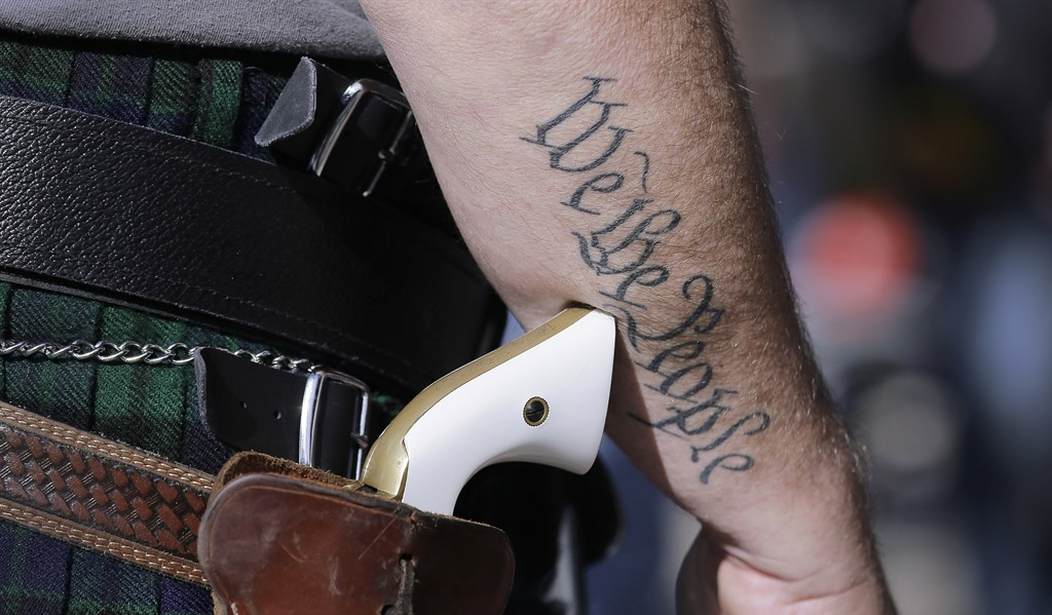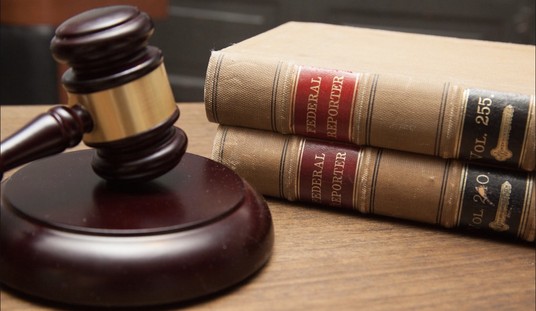The Bruen decision clarified that the Second Amendment not only protects the right to keep a gun for lawful purposes, but to carry one as well. While the Court struck down “may issue” concealed carry laws as an unconstitutional infringement on our Second Amendment rights, a California case could be the vehicle that undoes the ban on open carrying that exists in four states and the District of Columbia.
For several years it looked like Young v. Hawaii was going to be the case that decided whether the state can regulate the manner in which arms are borne, but after a settlement was reached last December the litigation is no longer active. But another open carry challenge, this one known as Baird v. Bonta, got its day in court last week as attorneys for the California Attorney General’s office and Second Amendment litigator Amy Bellantoni squared off before a federal judge in Sacramento.
I should note at the outset that U.S. District Judge Kimberly Mueller was a Democratic politician for several years in the the 1980s and 90s, and was appointed to the bench by Barack Obama in 2010 (though she was first named a federal magistrate judge in 2003, during the George W. Bush presidency). I’d like to think that Mueller is able to put her partisan politics aside and rule on the merits in Baird, but after seeing so many screwy decisions from judges since the Bruen decision came down, I’d be lying if I said I wasn’t concerned that we’re going to get a ruling based more on anti-gun ideology than adherence to the Bruen test.
The right to bear arms is, of course, expressly protected by the language of the Second Amendment, so under the Bruen test it’s up to California to conclusively demonstrate that a ban on open carry (or analogous restrictions) is a part of the national tradition of carrying a firearm for self-defense. Deputy AG Lara Haddad wasn’t able to do that, but it sounds like Mueller is willing to give the state the benefit of the doubt.
Referring to U.S. Supreme Court case District of Columbia v. Heller, another major firearms decision, Mueller noted the right to bear arms isn’t unlimited. Prohibitions in schools and government buildings, for example, are allowed. The judge then questioned if those restrictions can be imposed, why can’t a state have a licensing system for firearms.
For Bellantoni, the issue comes down to Bruen and the need for a historical analogue, or similar law at the time of the nation’s founding. Licensing penalizes people by prohibiting the open carry of firearms until the individual obtains a license, essentially removing that prohibition.
“Everyone starts with the natural right,” Bellantoni said.
Haddad said historical analogues don’t need to be “a dead ringer or historical twin” to qualify. She pointed to an 1837 Georgia law that restricted carrying any weapon.
Bellantoni countered that the Georgia Supreme Court later overturned that law.
“You can’t criminalize a natural right,” she added.
You know California’s got a weak case when their best historical evidence for an open carry ban is a Georgia law overturned by the state Supreme Court that also directly contradicts what the U.S. Supreme Court said in Bruen; the right to bear arms in self-defense is real, and while subject to regulation, cannot be licensed or restricted away to nothingness.
Still, Mueller has previously indicated she believes the state will prevail in Baird. The judge denied a request for a preliminary injunction earlier this year, and has been mum for months even after the Ninth Circuit reversed her opinion because she refused to consider the likelihood of success for the plaintiffs’ claims. Judge Lawrence Van Dyke, writing for the majority of the three-judge panel, told Mueller to quickly conduct another analysis and issue her new decision. Mueller has yet to do so, even as she hosted oral arguments on the state’s request for summary judgment.
In mid-October, Bellantoni wrote to the appeals court over 30 days after its decision about the lack of action from Mueller. The attorney referenced the Friday hearing, saying she was concerned the judge would delay a decision on the injunction until after the summary judgment motions were submitted and possibly decided.
The good news is that the three-judge panel assigned to hear the appeal of Mueller’s decision to deny an injunction understands the importance of the Bruen test, even if Mueller would prefer to ignore it. In their instructions to the judge, the panel explicitly told her to adhere to the test; first determining if the open carrying of firearms is covered by the Second Amendment. If that is the case, then Mueller must decide whether the state has shown a “well-established and historical comparison” to any similar bans in place when either the Second Amendment or Fourteenth Amendment were ratified.
It would be laughable for Mueller to claim that the right to bear arms doesn’t encompass the right to openly do so, but the Ninth Circuit has previously declared just that in its pre-Bruen decision in Young v. Hawaii, and I wouldn’t be surprised if Mueller does the same. If the Ninth Circuit’s past allows us to predict the future, the next steps would be a reversal by the three-judge panel, Baird being taken en banc by a larger panel of Ninth Circuit judges that reinstates California’s open carry ban, and the Supreme Court asked to resolve the dispute.
Given that an open carry case was one of the lawsuits SCOTUS granted, vacated, and remanded shortly after the Bruen decision came down, the Court is likely to take a keen interest in Baird even though the Young case has been settled. The open-carry bans still in place in a handful of states (and newly enacted in Connecticut) may not be the next anti-gun dominos to fall, but I don’t see them surviving a real examination under the text, history, and tradition test adopted by the Supreme Court.









